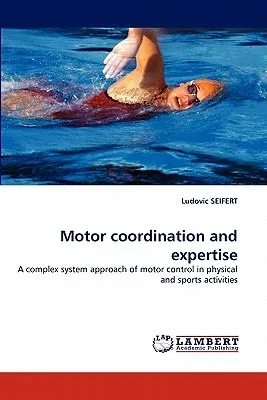Ludovic Seifert
(Author)Motor Coordination and ExpertisePaperback, 15 February 2011

Qty
1
Turbo
Ships in 2 - 3 days
In Stock
Free Delivery
Cash on Delivery
15 Days
Free Returns
Secure Checkout
Print Length
124 pages
Language
English
Publisher
LAP Lambert Academic Publishing
Date Published
15 Feb 2011
ISBN-10
384430875X
ISBN-13
9783844308754
Description
Product Details
Author:
Book Format:
Paperback
Country of Origin:
US
Date Published:
15 February 2011
Dimensions:
22.86 x
15.24 x
0.74 cm
ISBN-10:
384430875X
ISBN-13:
9783844308754
Language:
English
Location:
Saarbrucken
Pages:
124
Publisher:
Weight:
190.51 gm

